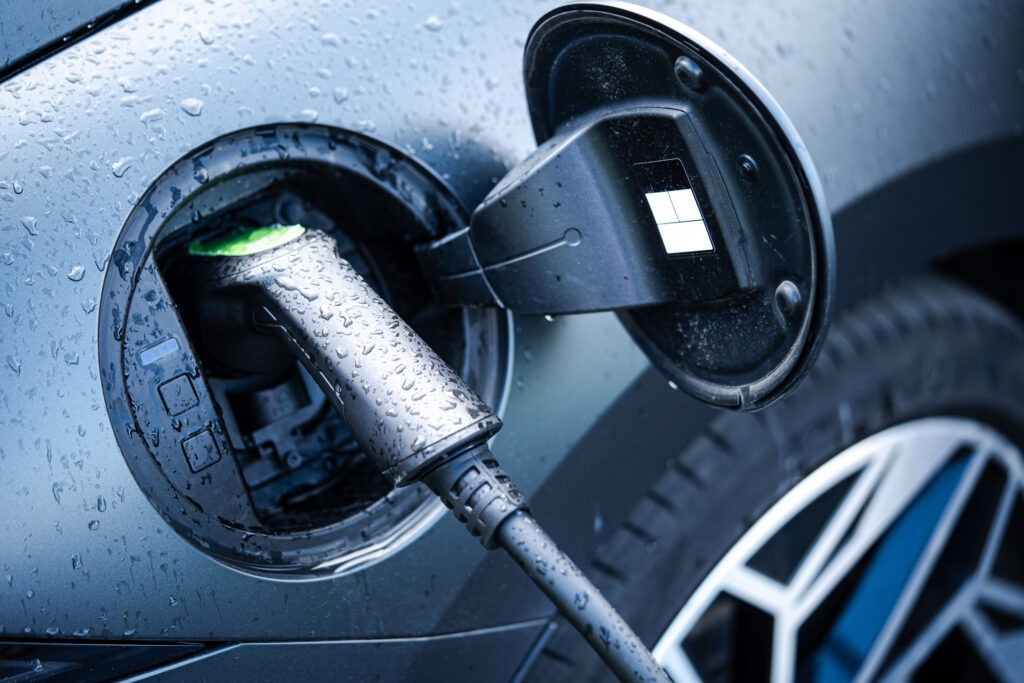European EV deliveries down in November as BMW triumph
22 January 2025

The European electric vehicle (EV) market declined in November 2024, marking its sixth drop of the year. Meanwhile, BMW reclaimed its lead as the best-selling plug-in brand. Tom Hooker, Autovista24 journalist, reviews the results from EV Volumes.
A total of 269,669 EVs took to European roads in November, a decline of 2% year on year. This equated to a loss of 5,526 units. BEV registrations improved slightly, however, a plug-in hybrid (PHEV) slump meant the overall plug-in figure fell.
In the first 11 months of the year, EV deliveries continued to lag behind 2023. There were around 2.66 million registrations from January to November, down 2.2%. This represents a gap of 60,721 units.
BEVs alone accounted for 68.8% of plug-in volumes during November, up 1.8 percentage points (pp) from 12 months prior. In turn, PHEV’s share dropped to 31.2%. All-electric vehicles captured 67.5% of the EV market between January and November, up from 66.8%. This meant PHEVs took a 32.5% share in the first 11 months of 2024.
BMW back on top
BMW was the best-selling plug-in brand during November, the first time it has led the market since August. The carmaker delivered 26,800 units in the month, its second-highest total of the year behind March. This gave the brand a share of 9.9%.
However, this trailed its result from the same period in 2023. The carmaker’s EV registrations declined 6% compared to November 2023, while its share was 0.5pp behind.
Volkswagen (VW) secured second in November, just 299 units behind BMW. The manufacturer reached 26,501 deliveries in the month, surging 30.2%, equating to an additional 6,145 units year on year. This marked VW’s best performance of 2024. It accounted for 9.8% of the plug-in market, up from 7.4%.
It was recently revealed that the brand could sell its unwanted German factories to Chinese buyers, according to Reuters. This followed strikes across multiple production plants towards the end of 2024, before an agreement was reached between VW, workers union IG Metall and the Works Council.
The German brand’s production capacities in its domestic plants will be reduced long-term by 734,000 units. VW also stated plans to reduce its workforce in the country by more than 35,000 by 2030.
This agreement will generate significant cost savings for the marque, with the carmaker aiming to become the technology leader of the world's volume manufacturers by 2030.
A tight top three
Tesla took third with 25,891 registrations, down 28.9%, or 10,524 units, year on year. However, this is a big improvement on its sixth-place finish in October. The result meant the top three brands were separated by just over 900 units in November.
The manufacturer captured 9.6% of all deliveries, far behind its 13.2% share from 12 months prior.
Tesla is currently facing an ongoing dispute in Sweden. Workers union IF Metall is preventing the carmaker from bringing new Superchargers online in the country, causing increased demand at the chargers that do have power.
Mercedes-Benz finished fourth, reaching 23,987 registrations. This was a 2.4% rise compared to November 2023 and its second-best performance of the year behind March. It made up 8.9% of EV deliveries, up 0.4pp year on year.
The marque recently announced the expansion of its partnership with Google Cloud. The two companies are working on an AI-powered search that will enable drivers to have natural-language conversations with the MBUX Virtual Assistant. This means drivers can get information from Google Maps Platform about nearby points of interest and more.
Volvo came in fifth in November with to 19,756 registrations. This was a 29.6% rise, equating to 4,514 units extra compared to the same point in 2023. Its 7.3% share was up 1.8pp on 12 months ago.
Skoda took sixth with 13,584 units, a growth of 12.3%. The manufacturer accounted for 5% of plug-in deliveries, an increase of 0.6pp year on year.
Audi and Kia slump
In seventh was Audi, recording 13,253 registrations. This was a 29.6% or a 5,562-unit slump on its performance from one year ago. It captured 4.9% of the market, a significant distance away compared to its 6.8% share from 12 months previously.
Renault secured seventh in November, reaching 10,300 deliveries. This was a 38.7% surge, or 2,874-unit gain year on year, its best result of 2024 so far. It gave the brand a 3.8% share, up 1.1pp.
Renault Group brand Mobilize recently announced its alliance with NW, a French electricity storage and energy transition company. The joint venture will focus on the field of EV charging and energy storage, aiming to create innovative solutions for Renault Group EV users.
Kia came ninth with 9,619 registrations. This was a 23.4% or 2,945-unit decline compared to November 2023. The carmaker’s market hold fell 1pp to 3.6%.
Rounding out the top 10 was Cupra with 9,572 deliveries. This was an 8.6% increase from one year ago and its second-highest monthly total behind June. The brand made up 3.5% of EV registrations, a 0.3pp improvement from November 2023.
Tesla holds on
Tesla held onto its lead as Europe’s best-selling EV manufacturer for the first 11 months of 2024, despite BMW’s strong month in November.
The carmaker recorded 283,751 registrations between January and November, a 13.2% decline. This equated to 43,303 fewer units compared to the same period in 2023. It accounted for 10.6% of deliveries, behind the brand’s 12% share from one year ago.
Despite weaker performances in October and November, the carmaker has a 19,139-unit lead over BMW in second. The latter reached 264,612 registrations in the year to date, up 14.4% or 33,371 units. The marque captured a 9.9% share, up 1.4pp.
Mercedes-Benz took third in the year to November, with 233,911 deliveries. This was a 10.5% rise, meaning 22,203 extra deliveries were made year on year. The marque made up 8.8% of the EV market, up 1pp.
Volvo came fourth, thanks to 218,049 registrations. This was a surge of 66,088 units on the same period during 2023, equating to a 43.5% increase. The brand’s share rose from 5.6% to 8.2%.
Fifth place went to VW with 203,332 deliveries, down 9.2%. It accounted for 7.6% of registrations, a 0.6pp decline year on year. Audi secured sixth, recording 158,935 units. This was a 0.9% rise from January to November 2023 and represented a 0.2pp increase in market share to 6%.
Kia moves up
The first movement in the table came in seventh, with Kia gaining a place. The manufacturer recorded 110,229 deliveries in the year to date, down 12.5% or 15,758 units. It captured 4.1% of the market, down from 4.6%.
Peugeot fell into eighth, with 109,992 registrations. This was a 10.4% or 12,830-unit decline year on year. This gave the carmaker a 4.1% share, down 0.4pp. Meanwhile, Skoda gained a position in ninth, with 91,342 deliveries a 4.7% increase compared to the first 11 months of 2023. It accounted for 3.4% of registrations, up 0.2pp.
This meant Hyundai dropped to 10th, recording 85,768 deliveries. The brand saw volumes decline by 15.3% or 15,540 units year on year. Its share fell from 3.7% to 3.2%.
Hyundai Motor Group recently partnered with NVIDIA to accelerate the development of AI solutions. The companies will collaborate in areas including adopting accelerated computing, generative AI and industrial digitalisation technologies.
The carmaker is also investing 24.3 trillion Won (€16.2 billion) in its home market, according to the FT. This investment will focus on R&D, upgrading facilities for EV production and accelerating its technological development for autonomous vehicles.




